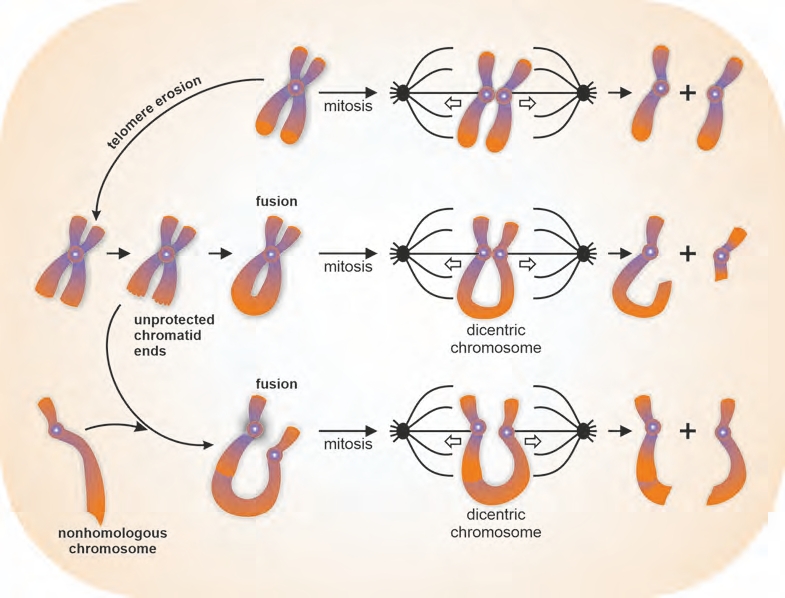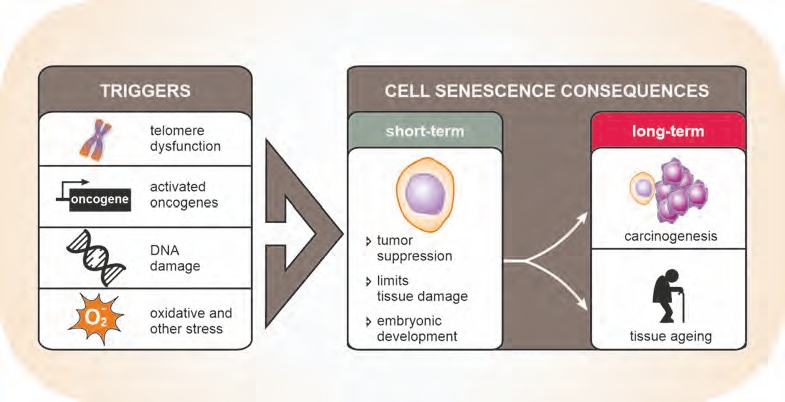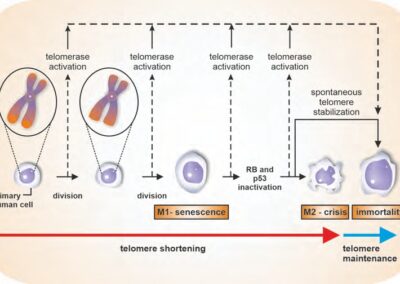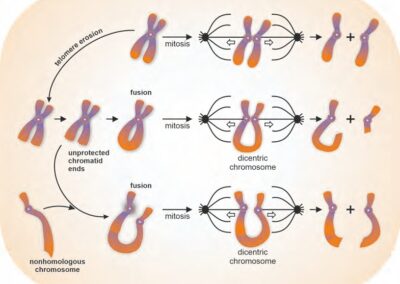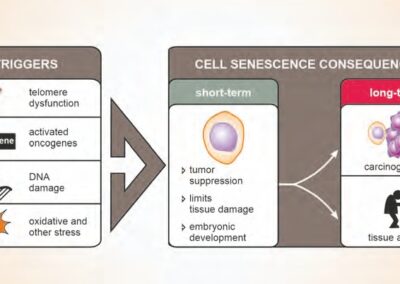This chapter begins with an explanation of the mechanism that ensures adequate viability for healthy cells. The reader is given an explanation of the term „telomere“ and its significance for the protection of chromosome ends and learns how the gradual physiological shortening of telomere segments is reflected in the initiation of senescence processes and subsequent natural cell death. Healthy cells cannot proliferate indefinitely, and when the telomere reserves are exhausted, they naturally stop dividing. The stage of senescence that leads to cell death is a physiological process with well-defined rules and accompanying phenomena that are beneficial to the host organism, similar to apoptosis. However, malicious tumor cells can get around this problem and find a way to activate an enzyme called telomerase, which allows them to reset the telomere counter of cell division. In this way, they break through this protective anti-tumor barrier, ensuring the possibility of further division while preventing the cells from „aging„. The process of senescence cannot occur in them, instead they become immortal. At least until they kill the host organism on which they parasitize as a tumor.
In the second part of the chapter, the topic of cellular senescence serves as a starting point for in-depth philosophical reflections on what aging means and should mean for humans. Again, the author finds a number of parallels between aging – senescence at the cellular level and at the level of the organism that can inspire us. It is a compelling treatise on how inadequate the current „anti-age“ culture of denial of aging is and how much it resembles one of the hallmarks of cancer cells. Masking aging helps us to deny the process, robbing us of the opportunity to look more closely at what aging means to humans and what is positive about it. She frequently quotes recognized experts on aging and dying, such as the German Catholic priest and philosopher Anselm Grün, the Austrian founder of ethology and Nobel Prize winner Konrad Lorenz, and the Swiss-born American scientist Elizabeth Kübler-Ross. Among the many remarkable ideas that can motivate readers to improve their lives and die peacefully, I would like to quote this one: „The anticipation of aging should encourage us to leave procrastination, fears and excuses behind and enjoy life to the fullest!“ Here and now! Immediately!„

